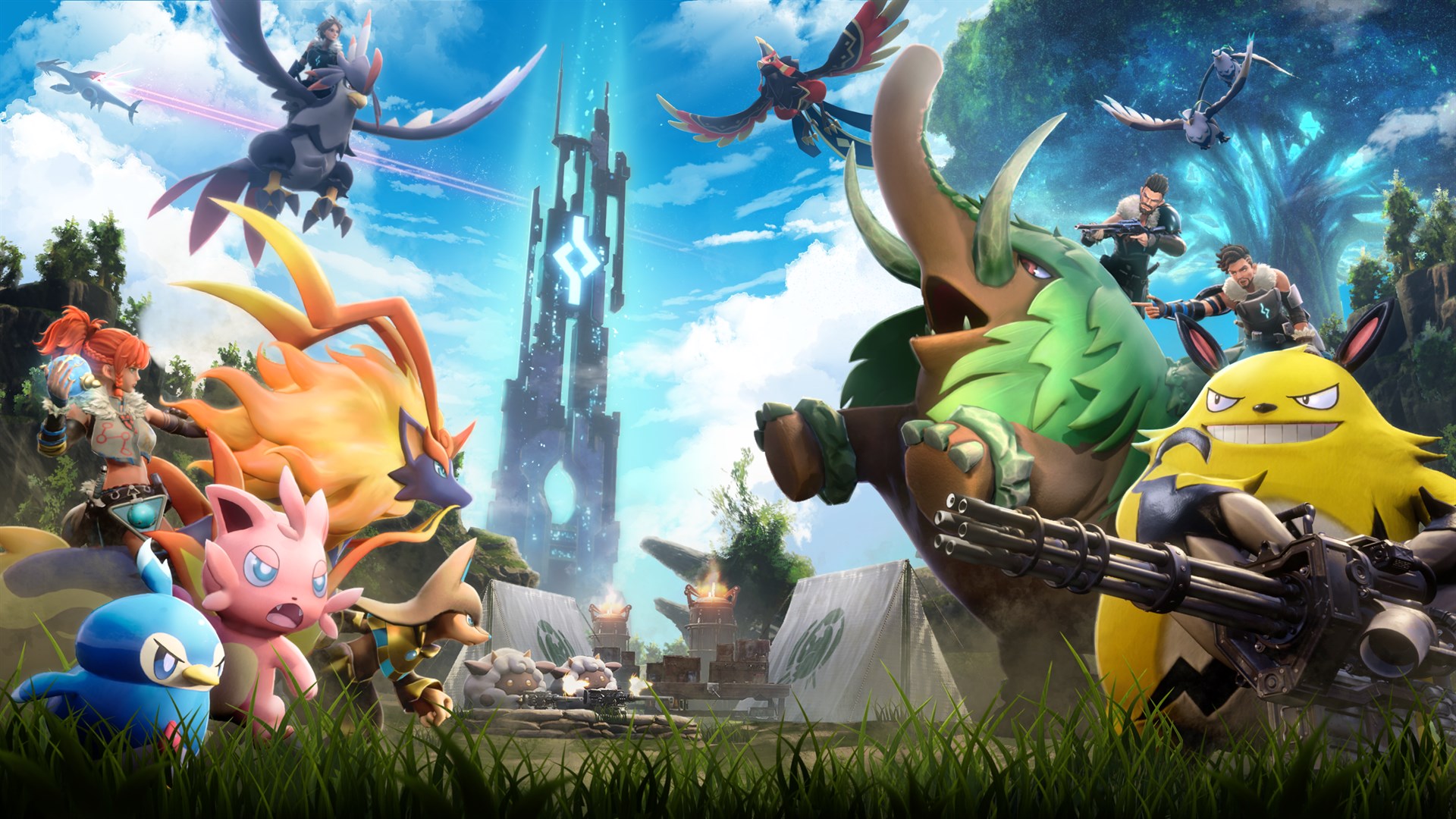Baldur's Gate 3 Dev Calls Out Nintendo's 'Bad Faith' Patent Tactics
Last Updated: October 17, 2025

In the vibrant, ever-evolving world of video game development, where creativity typically reigns supreme, a contentious shadow frequently lurks: the complex landscape of intellectual property and patents. This long-standing debate recently ignited into a fiery industry-wide discussion following the meteoric rise of *Palworld* and Nintendo's subsequent scrutiny of the game.
Adding significant weight to the conversation, a prominent developer from Larian Studios, the acclaimed creators of the multi-award-winning *Baldur's Gate 3*, publicly accused such patent practices as often being deployed in "bad faith."
The Palworld Phenomenon and Nintendo's Watch
When Pocketpair's creature-collecting, survival-crafting game *Palworld* launched in early 2024, it exploded onto the scene, quickly selling over 15 million copies on PC alone within its first month. Its undeniable success, however, was quickly followed by intense scrutiny due to its striking similarities to Nintendo's beloved *Pokémon* franchise. While Pocketpair has maintained that *Palworld* is distinct and that no infringement has occurred, the visual and gameplay parallels sparked a furious debate among players and legal experts alike.
Nintendo's official response came swiftly. While they did not immediately file a direct lawsuit against Pocketpair as of early 2024, they issued a statement confirming an investigation into *Palworld* for potential infringement of their intellectual property, vowing to "take appropriate measures" if any illegal acts were found. This strong declaration set a precedent, emphasizing Nintendo's unwavering commitment to protecting its iconic *Pokémon* brand.
Adding fuel to the fire, reports surfaced around the same time regarding a specific Nintendo patent that had been granted, covering the core mechanic of summoning characters to battle. This patent, particularly relevant in the context of both *Pokémon* and *Palworld*'s gameplay loops, raised concerns about its potential to reshape the landscape of monster-collecting games. Critics argued it could give Nintendo a near chokehold on a genre they popularized, potentially forcing other developers to navigate a complex legal minefield or face significant hurdles if their games feature similar mechanics.
Larian's Voice: Michael Douse Enters the Fray
It was into this heated atmosphere that Michael "Cromwelp" Douse, the publishing director at Larian Studios, entered the fray. In a now-deleted post on X (formerly Twitter) in early 2024, Douse succinctly summarized the escalating situation with a powerful statement: "These types of patents are too often used in bad faith." While he didn't elaborate further, the remark resonated deeply within the development community.
Douse's opinion carries significant weight. Larian Studios, under his purview, achieved monumental success with *Baldur's Gate 3*, which garnered numerous Game of the Year awards in 2023, celebrated for its innovative design, rich narrative, and player-driven choices. His criticism, therefore, wasn't merely a random developer's commentary; it reflected a growing concern among esteemed industry veterans about the potential misuse of patents to stifle competition and innovation rather than genuinely protect unique inventions.
The Industry's Crossroads: Innovation vs. Protection
The Nintendo-Palworld discussion, amplified by Douse's pointed comments, brings critical questions about the role of patents in the gaming industry to the forefront. Is the patent system primarily about protecting genuine innovation, or has it become a tool for established giants to wield power and create legal roadblocks for emerging competitors?
A significant concern highlighted by this debate is the potential for a "chilling effect" on smaller, independent developers. The sheer cost and complexity of fighting legal battles against a company with Nintendo's resources can be crippling, regardless of the merit of the case. This fear can discourage new ideas, especially those that might inadvertently brush up against existing, broadly defined patents.
While Nintendo, like any company, has an undeniable right to protect its intellectual property, Douse's statement encapsulates a broader sentiment within the industry: that some patent applications extend beyond genuine innovation, veering into territory that could be seen as an attempt to monopolize fundamental gameplay concepts. It's a tricky situation that demands a delicate balance between safeguarding original work and preventing overzealous claims that could stifle the very creativity that drives the gaming world forward.
The Path Forward: A Legal Minefield
The ongoing scrutiny surrounding *Palworld* and Nintendo's IP, coupled with the potent commentary from figures like Michael Douse, serves as a crucial cautionary tale for the entire gaming industry. It underscores the potential for patent systems to be leveraged in ways that provoke debate and highlights the urgent need for a more nuanced and equitable approach to intellectual property protection.
The future of gaming hinges on striking a crucial balance – one that robustly protects genuine, innovative creations while simultaneously fostering a competitive and open environment where creativity can flourish without fear of undue legal encumbrance. Navigating this legal minefield is proving to be a challenge far more intricate than conquering any in-game boss battle, and the gaming community continues to watch intently, hoping for a resolution that ultimately benefits all creators and players.